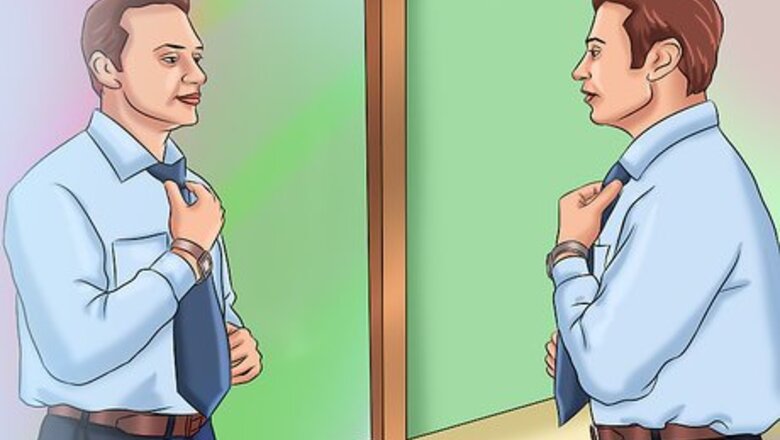
views
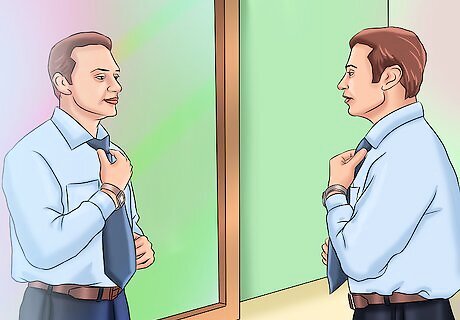
Take a quick look at your attitude toward this whole process. Since you're still reading, it's fairly certain that an operation such as the title suggests interests you, but there are perfectly sane, grounded people who might run from such, dismissing it as philosophy, at least for them; you might correctly call their approach toward such unconscious, and their attitude dismissive (which doesn't preclude them from having a more highly developed sense of truth than you); the point is, it's a good idea to be honest with yourself in where you stand in this respect. Basically begin examining, reducing, or removing some filters that constrain you here, as respects truth and illusion (which aren't exact opposites), and your individual interest in truth and illusion (or lack thereof). Of course, your filters being who you are, in a real sense, makes this an ongoing exercise -- while many filters are conscious, many are not; and, while books have been written about finding the unconscious ones, an important distillation seems to be "change your mind"...or a better way to print it might be "alter your mind completely", inevitably away from choices that support illusion, which, again distilling, seem to usually be selfish choices.Understand why we have the cliche', "A little knowledge is a dangerous thing". People tend to accept the first piece of info on a new thing from a trusted source, and then exclude any new information, even contextually different information, that does not line up perfectly with their treasured "knowledge".You should examine any new information you acquire about truth or illusion. Any new info will typically generate additional questions in your mind to fully grasp its potential. Beware answers that are too 'pat', even if you aren't able to immediately say why. Pain is the best teacher; but seeking pain for the sake of truth can become gratuitous in itself, and becomes more illusion.Hopefully, this step has gotten you to examine your premises a bit, and hopefully, you took some time with it, as this is where most people go wrong. The smallest mistake in premises is quickly magnified. For example, see how what may seem to be a perfectly acceptable (but inaccurate) premise, like "I need money to survive", can be fraught with illusion, from the beginning; you never had a chance to find any truth -- you were on a deceptive path the whole time.

Understand your current metric for truth. There really is only one measure, and that is the "fruit", or outcome of truth compared to illusion~at the end of the day, "Will it go 'round in circles?" is all that matters; and you can apply this metric to your next decision, and the one after that, as long as your premises are sound. Conversely, you may spend your whole life seeking to place truth under your finger, only to lift your finger, and find that truth is gone! See that even Einstein, after his theories of relativity began to be proven and accepted, denied that any absolute truth had been reached; instead recognizing that even developing the model altered the perception of the truth in such a way that it merely became obscured differently.The answer to, Is truth a rock, or a river? is yes.
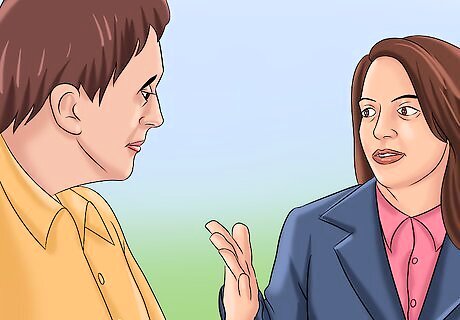
See why you desire the truth -- or in fact, if you do. The truth could be a life changing perspective shift, or something that you don't know about, and just aren't interested enough to hear; see that it could be both, or anything in between.The truth is rarely affected by your opinion of it. Although it can only be called a worthy endeavor to seek the truth, sometimes (or often), in your search, you will discover it in the least likely places.
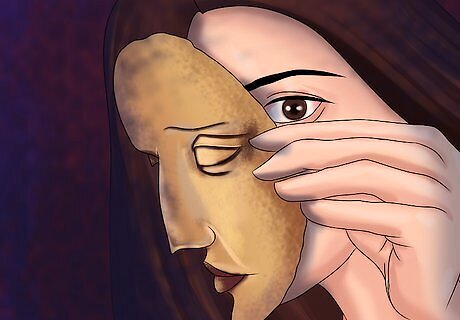
Gather how truth can be pretended to. This is because truth is a reflection -- of Truth. You probably have so many versions of "truth" coming at you in a day, working this out has become unconscious for you, actually coloring your entire perspective -- it is one of your most fundamental filters, and it is in shades of grey.This next part is tough to even put into words {the words want to double~back on themselves}, and requires a certain...letting go? detachment? of emotion, from things that can make people emotional; but, to the extent that you are able... Examine how truth is manipulated (without dwelling on it), in a clinical kind of way, even your own manipulations of truth, to allow you to become more conscious of a (previously unconscious?) "grey" filter that you can now hopefully remove or replace more completely on demand; now it can be a kind of polarizer lens, that you may not need inside, or surrounded by safety. Then, the only limitation on how far out you can expand this circle is your willingness to change your mind. This can cause quite a perspective shift. Unfortunately, "polarizing" (which is just what it is; a tension is introduced) is possibly as close as one can get to clarity here, in words, except to say that if you happen to know the right person, or people (sometimes it's a lifelong friend; Mid-easterners tend to have fewer pretensions than people in the "developed" world), the magnification that can occur when this is understood, even between only two people, causes a perspective shift that you can point to (even though you may never have thought about it in words).You can suddenly become more centered for the knowing, and exude the possibility of anything more strongly -- and people are either going to be more or less attracted to that. you have just confronted them with the possibility of now. Comfortableness with your new perspective will end up being paramount over any contact, or relationship.

Note that truth and illusion are not opposites. Illusion is a reflection of truth; and they are ever, only determined by their fruit; which can be seen before the fact, as potential. Yup -- you saw it coming a mile away, hello? Where were you? This might be a central question implied by the title; so, finally, lets look at that. Feeling qualified to read the potential in a situation, and not be fooled, can become a focus for people, and is just...more illusion! There are jobs that pay people to...propagate? this illusion; you may know some. There are tests to "detect" untruth in people -- you may have taken some. There are questions that, should you be so inclined, you could ask people; you have probably asked them, all your life.Understand that these questions, while often useful in a practical way, are, at their core, illusion, and necessarily ignore a person's free will; they are an attempt to approach a reflection of truth -- the "verbal" truth. Just as it is true that the most vetted person can commit atrocities, the least dependable can reform, or even show a different side, based on their feelings or understanding in a particular situation -- a thief may not steal from you, seeing more to be gained by refraining (that vision can be transplanted from you). Otherwise your free will would have to be considered just an illusion generator; which an immature, unbridled free will pretty much is. "Free will" is why children have babysitters. There is a saving flip side here; free will is always going to have a voice in you, that you are free to ignore completely. You are not your ideas. Free will is that weird idea that makes you ashamed (but is perfectly normal -- it's possibility).You make a choice when you act, not when you think; although you also make choices about what to think about, or dwell on. Thinking can quite get in the way, sometimes, however: The genius Minkowski, a professor of Einstein's, "demonstrated that a limitless number of different descriptions of the same phenomenon could be provided by a single equation, through the introduction, in a certain way, of time as a fourth variable...the result was an equation which dealt with the "real" world, of which the differing descriptions as seen from differently moving bodies were but partial and incomplete expressions...much as to the wolf and the dog of George Lewes, 'the external world seems a continuum of scents.'" RW Clark EINSTEIN The Life and TimesThis from a scientist, in a freaky echo of the Hebrew Dabhar.
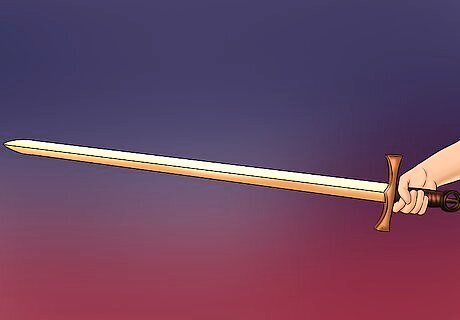
Embrace that lessons in truth, while seeming one-sided, usually are not. Thus, two-edged sword. The only difference in someone who feels duped in a matter, possibly after the fact, and the one who recognized the possibility of manipulations by another's free will, and still acquiesced to a request (for instance), is perspective. Free will exists in "doo doo occurs", and is it's own lesson -- and it can be harnessed, or given free reign; apocalypse.




















Comments
0 comment